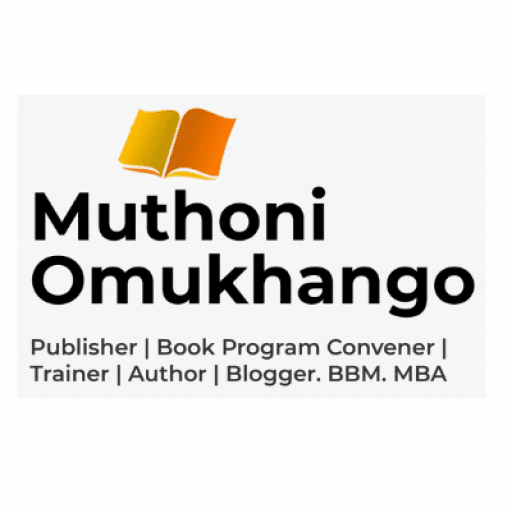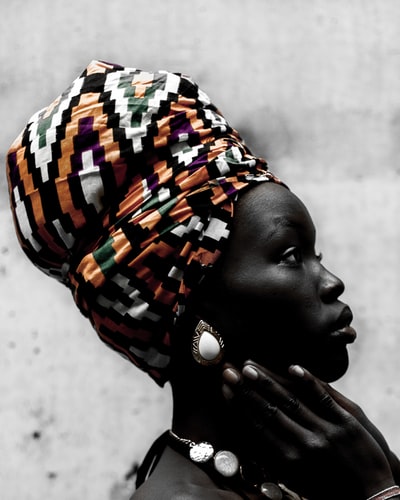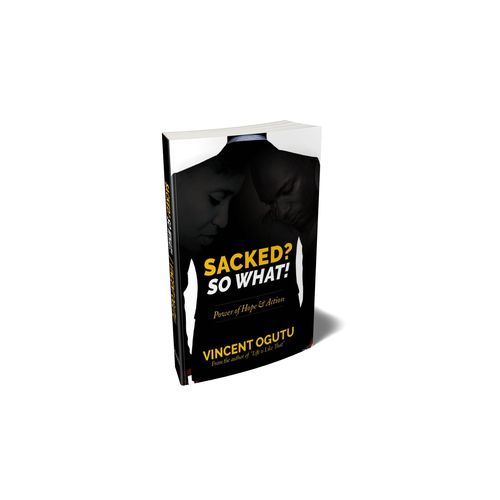By Vincent Ogutu
“Matter cannot be created or destroyed” Albert Einstein
Energy cannot be created or destroyed, MC2 = E
This quote reinforces my belief in innovation and that the belief in only new things is not realistic. Below is the justification for why I believe domesticating concepts enables authors to impact more readers.
- Introduction
- Local (African) writers vs. Western writers
- Feedback / what the book is doing
- Debate
- Conclusion
INTRODUCTION
It is a fact that there is already too much information in the world. For instance, we have one Bible, however, interpretations and perspectives differ from one person to the other. Disclaimer – This is my view and how I see things. I speak my mind, and I am open to criticism and love debates.
Why do interpretations and perspectives differ?
Revelation
Ideas
Understanding
This brings me to the debate on why Western writers seemingly produce better quality books than local (African) writers? I start with defining who is a local writer? Who is your audience? Who is an international writer? Who is the international audience and what are the determinants of a book’s success in the market?
As I start on this topic, let’s discuss innovation from the perspective of an entrepreneur. I have learnt to always start from known as you move to the unknown. Joseph Schumpeter, believed to be the father of disruptive innovation/creative destruction will help us understand innovation and how we can use it to our advantage and to the benegit of our readers.
Innovation is
new/novel,
new uses,
new methods of production,
new sources of raw materials,
new markets or
New forms.
There are very few novel innovations in the world. Many are reorganization of concepts on the basis of architectural innovations, incremental innovations, modular innovations & radical innovations.
These concepts explain why Microsoft was not the first computer company yet the most successful. Apple was not the first mobile phone company but the most successful in innovation and marketing. Let’s explore this further:
Incremental – Faster, cheaper
Architectural- Arrangement of components
Modular- Design changes
Radical- Total/ novel/new i.e. telephone to mobile
As authors how do we take advantage of innovation?
Incremental – we can look at the book Conceive Achieve by Julius Mwebia. From the initial book, a version for teens was produced in collaboration with a teen author, Adnah McKenna.
Architectural – A few years after producing the first book, you may decide to reorganize the flow of chapters, remove some parts or re-write the flow based on cumulative feedback you will have collected.
Modular – is changing the design of the book i.e. cover, fonts, layout and so forth.
Radical – is producing a film or training program based on the book you have published.
LOCAL (AFRICAN) WRITERS VS. WESTERN WRITERS
It would be inappropriate to compare African writers with Western Writers because of the outlined reasons:
1) The world has historically not been fair to the African man (or woman). Theories and academic papers were produced by demented scholars in USA, Germany & UK (Darwin’s Theory of evolution)
2) Who decides which book will be published or not? It is a ‘System’ that was designed by non-Africans. Remember Oprah/Hispanics fiasco “American Dirt”. The deciders are Marketing Strategies, Celebrities, Reviews Push, push, push.
3) The truth: The publishers don’t know which book will sell and tend to be biased with historical experience. Most of the time you have to be known to be trusted!
Based on the above reasonings, we have examples of publishers bias and the results:
- Chicken Soup for the soul had 140 rejections but later sold 125 million copies
- Things Fall Apart was rejected in London because apparently African authors cannot sell in Europe but later sold 8 million copies; is taught in many Universities in Europe, USA & Globally
- Beatrix Potter- The Tale of the Rabbit was rejected too many times, then the author self-published with 250 copies but later sold 45 million copies.
How can Africans become successful writers?
- It is important to note that well read writers, write about experiences mainly on African stories. Examples include:
- Wole Soyinka- The Lion and The Jewel
- Ngugi wa thiongo- Petals of Blood
- Chinua Achebe- Things Fall Apart
- Dambisa Felicia Moyo- Dead Aid
- Chimamanda Ngozi Adichie -Americanah
Tinga Tinga Tales- was of Tanzanian origin but imported to Kenya, modified, animated and sold abroad to BBC, Disney, and Universal Pictures.
This was another form of innovation but originators in Tanzania did not benefit much and had no recourse because we deal with organized systems (also called cartels).
The above African writers are grounded experts in their own fields and have a story to tell as authentic as it is full of African heritage.
Other successful non-African Authors
Robert Greene – Laws of Power. He’s an average chap but curious observer who studied classical studies.
George Orwell- Animal Farm is a political satire loved by many especially the masses for comic relief.
Mario Puzo- Godfather made into a movie (innovation) though it was initially rejected.
To succeed as an author what do you do?
- Remain relevant and be authentic, tell stories from your observations and experiences, we cannot and will never be western writers.
Write your content well, that is, do a good job in your writing process. People will discover you just be good, read your work again and again, improve, enter competitions, and be radical. - Stay honest in your perspective and have a consistent delivery.
Let me share a review of one of my books by An American Entrepreneur:
Hello Vincent,
Yes, I LOVED “Sacked? So What!”
Below are my thoughts regarding your book:
• You have a comfortable writing style. The result is that the book is an ‘easy read.’ In my view, that is important as it allows the book to embrace a wide audience from educators, researchers, entrepreneurs, ‘wanna be’ entrepreneurs, and sacked employees looking for a way to salvage their future.
• I really enjoyed the quotes you had at the beginning of each chapter, and scattered throughout the book. They were inspiring and very relevant to me as a leader, entrepreneur, and reader of your book. Some of your quotes were familiar, but, there were some which I had not read before. I appreciate that you did not just copy from another author, but your quotes show diligent research and unique creativity. I appreciated that.
• I also found your ‘Lessons’ learned at the end of each chapter helpful. They pulled together, very succinctly, the life lessons for each story chapter. That helped to make the stories personal and more meaningful to me. I found myself applying the ‘Lessons’ to myself as I read through them.
• I enjoyed the stories. It was clear the stories were real stories involving real people with genuine experiences. The stories were told in a simple and straightforward manner with little fanfare or ‘fluff’. That made them endearing and powerful.
It was a joy to read your little book, Vincent. I found it uplifting and highly relevant. I am sure in reading your book, those facing the crossroads of vocational direction will be filled with new peace and understanding for their present, and hope and anticipation for their future.
Blessings to you as we labor together to build for His Kingdom,
Glory to King Jesus,
Ray Barreth | CEO Agora Enterprises
My question to other Kenyan/African authors is, do we read other African authors? here is what a Kenyan reader, Moses Ndura wrote to me,
I set my annual goal to read minimum 24 books; 2 books a month. I have geared my speed currently and I may likely end up reading more books than I anticipated. I have read 2 books from Vincent Ogutu: Sacked, so what? And Who are the Top Billionaires in Africa? Which are absolutely terrific.
It is not always that you get or give good feedback. My encouragement is that we make effort to pick a book in your area of interest that’s written by a Kenyan/African. This is how we will promote and improve on content coming from Kenya and Africa at large.
Here are some topics for Debate Discussions:
Self–Published authors are poor and cannot sell their books. Response: Nobody writes to get rich but to impact the communities around them.
Many authors copy information from Google and package it into books. Response: When Google is used well, it is the new library where authors can get authentic sources of information.
Self-published authors are accountable to no one. Response: You are accountable to your readers; they will keep coming for more of your books if you are good at what you have written.
Authors use introduction as authors for “bragging rights”. Response: What is wrong with bragging about what you have achieved? Fear has prevented many people from realizing their potential. If you are an author, proudly introduce yourself as so.
“One Television Anchor who reviews books said most self- published books are a no no for her… especially Kenyan books” Response: That anchor needs to start her station and realize it is complex building a business when you demean your audience.
Conclusion
There are rich stories in the African culture, especially the folklore, let’s keep telling stories. Stories are powerful and will sell anywhere humanity resides.
ABOUT THE AUTHOR:
Vincent Ogutu is an articulate coach passionate about transforming the entrepreneurial culture in Kenya. He is committed to well-researched material that can be applied in our day to day life – Joseph Mbugua- Entrepreneur & Business Coach
Vincent is a thought leader who is inclined to quick actions in any presenting situation. He is brunt and practical in his thoughts. He has lived true to the creed of monetizing his competences and passions. His books are a testimony of the practical entrepreneur that Vincent is – Wahome Ngari- Financial Educator & CEO.
Vincent Ogutu is an Author, Transformational Speaker, and Business Coach. He is passionate about business, people development, and growing enterprising institutions. Vincent coaches, mentors, trains and runs workshops on people development as well as entrepreneurship development. He has published in peer reviewed academic journals.
Vincent is currently pursuing his doctoral training in entrepreneurship at JKUAT. Vincent is a regular speaker at meetings and conferences and has mentored many entrepreneurs. He appears on KBC television on the Road to Success program. Vincent mentors for Tony Elumelu Entrepreneurship Program (TEEP) and Venture Village Accelerator.
Buy Today https://www.jumia.co.ke/clc-booklink-life-is-like-that-power-of-lifes-contradictions-3646229.html









